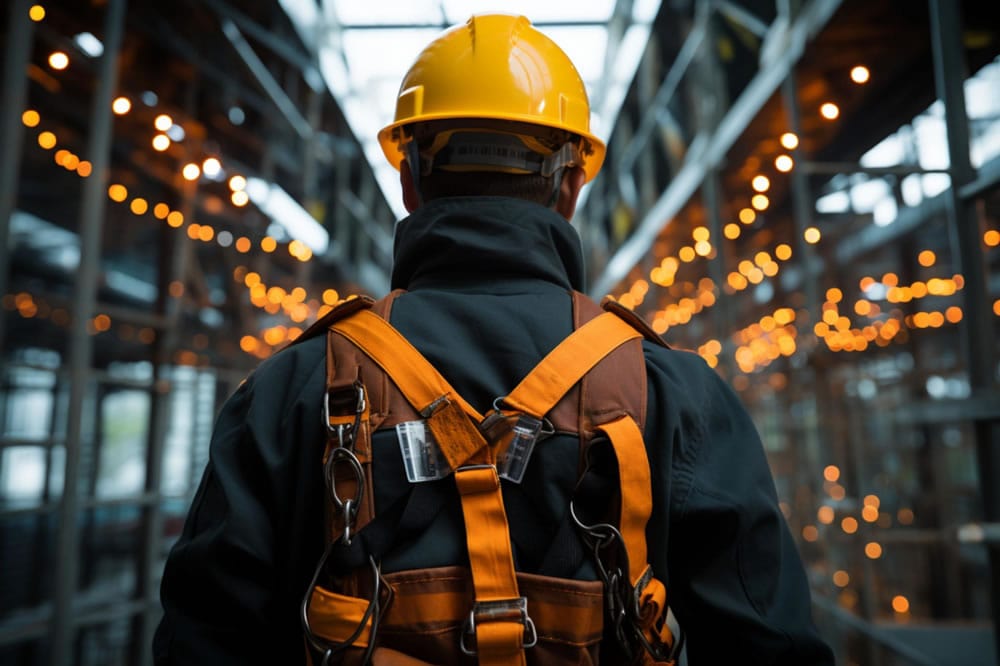Toolbox Talks, sometimes referred to as Safety Briefings are concise and accessible safety discussions held prior to a shift. But why do we need them?
According to the Health and Safety Executive, in 2022/23, there was a loss of 35 million working days in the UK, due to work-related ill health and non-fatal workplace injuries.
With an annual cost exceeding £20 billion, this highlights the pressing need for businesses to prioritise Health and Safety in the workplace.
Certainly, the implications, ranging from penalties to increased insurance premiums and lost productivity, underline the critical importance of maintaining robust Health and Safety practices.
One of the effective tools that many organisations use, to maintain robust Health and Safety practices and promote safety awareness is the safety Toolbox Talk.
But what exactly is a Toolbox Talk, and why is it called that? In this article, we’ll explore the ins and outs of Toolbox Talks. We will review their importance in maintaining workplace safety and how organisations can leverage them effectively.
What are Toolbox Talks?
Toolbox Talks are informal safety meetings or discussions that take place among employees in a workplace setting. These sessions, typically aim to engage workers in conversation about the Health and Safety risks related to their duties.
They are designed to be interactive and informative, ensuring that employees are aware of potential hazards and best practices for mitigating risks.
They provide an opportunity for workers to gather and discuss specific safety topics. These topics are typically relevant to their job roles and work environment.
Generally, these talks are brief, lasting anywhere from 5 to 15 minutes. They are conducted regularly to reinforce safety practices, connect people, share observations and address potential hazards.
Why is it Called Toolbox Talks?
The term “Toolbox Talks” originates from the concept of workers gathering around a toolbox – a symbol of their trade or profession – to discuss safety-related matters. It reflects the practical and hands-on approach to addressing safety issues in the workplace.
Just as a toolbox contains essential tools for a job, a Toolbox Talk can equip employees with vital knowledge and awareness to navigate potential hazards.
Although the idea behind a Toolbox Talk started with Construction trades, they are not only for the Construction industry.
Any company that values the Health, Safety and wellbeing of their workers should be having Toolbox Talks. You may call them Safety Moments, Safety Meetings or anything that better suits your organisation.
What is it Used For?
Toolbox Talks serve several purposes in promoting workplace safety. They connect people, raise awareness among employees about potential hazards and safe work practices.
They facilitate open communication and dialogue, allowing workers to share their experiences, safety observations and insights.
They reinforce safety protocols and procedures, ensuring that everyone is aligned with organisational safety standards.
How it Helps Ensuring Health and Safety in the Workplace
Implementing Toolbox Talks as part of a comprehensive safety program has numerous benefits.
From empowering employees to take ownership of their safety and that of their colleagues to helping identify and mitigate risks proactively, reducing the likelihood of accidents and injuries.
In addition, it helps adopt a culture of safety and collaboration, where everyone is committed to maintaining a safe working environment.
Examples of Toolbox Talks
Generating ideas for Toolbox Talks can sometimes be challenging. To alleviate this hurdle, here is a created a list of commonly used topics that can serve as inspiration for your safety meetings.
Each of these topics is designed to address specific workplace hazards. Whether you’re looking to cover general safety principles or address industry-specific concerns, you’ll find valuable suggestions to enrich your sessions.
- Slips, Trips, and Falls Prevention
- Safe Hazardous Chemical Handling Procedures
- Fire Safety and Emergency Evacuation Protocols
- Proper Lifting Techniques and Manual Handling
- Personal Protective Equipment (PPE) Usage and Maintenance
- Machinery and Equipment Safety Checks
- Workplace Ergonomics and Posture Awareness
- Electrical Safety Practices and Procedures
- Workplace Stress Management and Mental Health Awareness
- Preventing Workplace Accidents Through Housekeeping
- Importance of Reporting Near Misses and Safety Concerns
- Recognising and Addressing Workplace Fatigue
- Effective Communication in Emergency Situations
- Understanding and Using Safety Data Sheets (SDS)
Importance of Keeping Records of Toolbox Talks
Maintaining accurate records of Toolbox Talks and other safety events is crucial for organisations for several reasons. Firstly, it demonstrates compliance with regulatory requirements and industry standards.
In addition, it serves as a valuable reference for future training and development initiatives.
Furthermore, it facilitates knowledge transfer, ensuring that safety practices are consistently upheld across the organisation in a central place.
EHSwise Event Tracking Software, helps you capture all safety events in one organised hub. From browsing Toolbox Talks to all other safety events, you can easily add participants (internal or external), capture their signatures, and documenting drills, training and induction events.
Where to Find Toolbox Talk Ideas
When it comes to sourcing topics for Toolbox Talk tailored to the UK and Ireland, there are several reputable resources available. Here are a few suggestions:
Health and Safety Executive (HSE) UK: The HSE website offers comprehensive guidance on workplace Health and Safety, along with specific Toolbox Talk topics suitable for UK businesses. Their Toolbox Talks section provides ready-to-use resources and templates.
Health and Safety Authority (HSA) Ireland: The HSA website provides a wealth of information on workplace safety, including guidance on conducting Toolbox Talks. They often publish articles, case studies, and resources specific to Ireland’s regulatory environment.
Trade Associations: Industry-specific trade associations often offer Toolbox Talk materials tailored to the unique hazards and challenges faced by their members. Examples include the Construction Industry Training Board (CITB) in the UK and the Construction Industry Federation (CIF) in Ireland.
Online Forums and Communities: Participating in online forums and communities dedicated to Health and Safety professionals can provide valuable insights and ideas for Toolbox Talks. LinkedIn Groups and Health and Safety Forums often feature discussions among practitioners.
By leveraging these resources, Health and Safety Leaders can access a diverse range of Toolbox Talk topics to address the specific needs of their workforce and industry.
Strengthening Safety Culture Through Toolbox Talks
In conclusion, Toolbox Talks play a vital role in promoting workplace safety and help create a culture of awareness and accountability.
By implementing regular Toolbox Talks and addressing relevant safety topics in a practical way you can engage your workforce to be more aware of their safety.
Finally, remember, safety is everyone’s responsibility, and Toolbox Talks provide a platform for ongoing education and collaboration. By prioritising safety through Toolbox Talks, you can create safer and healthier work environments for all.



